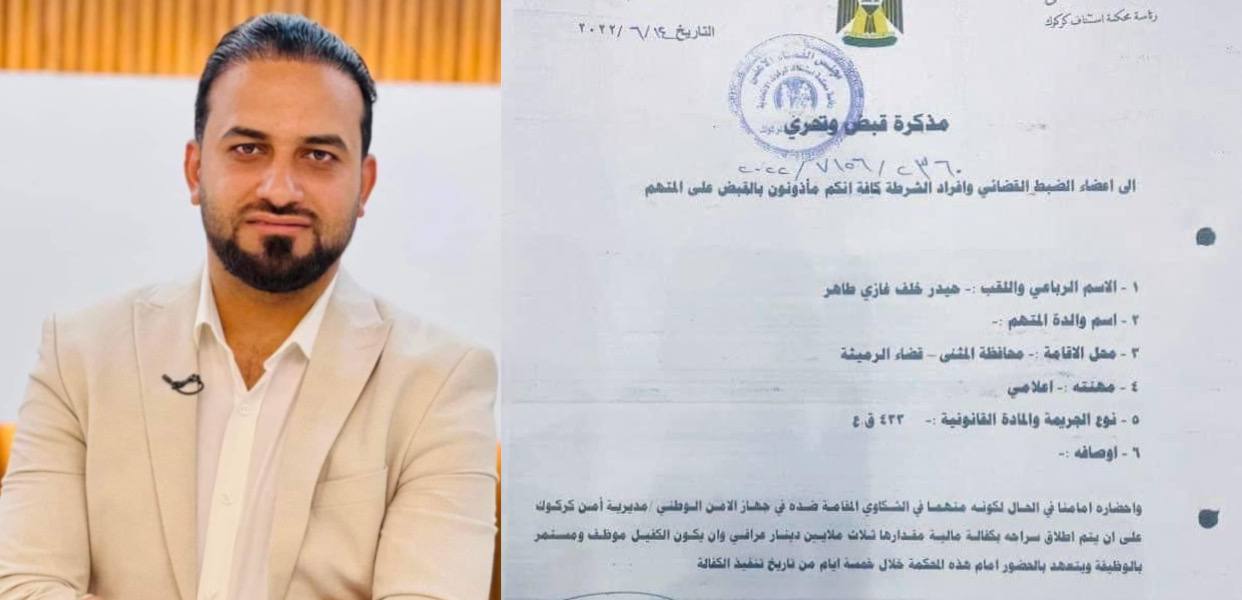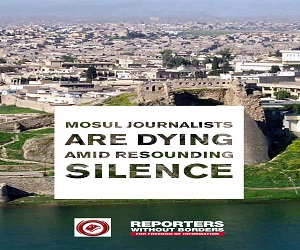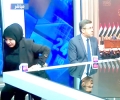 Journalist Haider Al-Hamdani has confirmed the authenticity of the document that claims an arrest warrant was issued against him months ago and has been circulating online.
Journalist Haider Al-Hamdani has confirmed the authenticity of the document that claims an arrest warrant was issued against him months ago and has been circulating online.
In an interview with JFO, Al-Hamdani said, "I was surprised by the arrest warrant against me." "I saw it on social media by accident, and it was issued six months ago," he explained.
He said, "I saw it on social media by luck, and it was issued six months ago. I was shocked by seeing the warrant, and I expected it to be fake, but after communicating with the National Security Agency, they assured me that The document was real and was issued by them based on a complaint from the commander of the Eighth Division, Major General Saleh Harz.
Further, he said, "Up to this point, I have been unable to ascertain the reason for the issuance of the arrest warrant ." His surprise at the issuance of an arrest and investigation order without issuing any previous recruitment is in direct opposition to the instructions of the Supreme Judicial Council. "It may be because I covered and reported the complaints of the wrongly accused security members and the poor, and it seems that the subject disturbed them, so they filed a lawsuit". he said.
Al-Hamdani has said that he would turn himself in to the appropriate authorities on Sunday, November 20, 2022.
Article 10/2 of the Journalist Protection Law of 2011 states, "The court must inform the journalist's Syndicate or the institution in which the journalist works about any complaint against him linked to the practice of his employment."
According to Al-Hamdani, the case against him did not pass through the Journalists Syndicate or the media institution in which he works, which is contrary to the Journalists Protection Law.
An important date to remember is August 11, 2022, when the Supreme Judicial Council sent circulars to courts on the process of "issuing arrest warrants against journalists."
The Council said in the document that went out to all the courts, "We refer you to the principles of Article 38, second paragraph, of the Constitution, which mandates freedom of the press, printing, advertising, media, and publishing." Therefore, complaints filed against journalists should be handled with care, with it being noted that the methods of coercion are as follows: it must appear in accordance with the Code of Criminal Procedure No. 23 for the year 1971, beginning with Article (87) and the articles that follow with the issuance of a summons to appear for the complainant.
The order claims that the court would issue an arrest warrant immediately if the complainant does not show up to court without a good excuse. This means that the complaint is not automatically followed by an arrest warrant; rather, the process is considered to follow the legal order established by law.
The Journalistic Freedoms Observatory (JFO) is surprised by the contempt for the Supreme Judicial Council's directives and the issuance of arrest warrants and investigations against journalists outside of the legal process.
JFO believes that these "silent orders," of which the accused are often unaware and which impact many journalists, particularly those based outside of Iraq, are traps that damage the press and media workers and are, therefore, in violation of the laws and regulations in place.
The JFO requests that the judicial authorities and other relevant authorities in Kirkuk governorate review decisions that violate the law and make it difficult for the fourth authority to communicate with the judicial authority.






.jpg)









